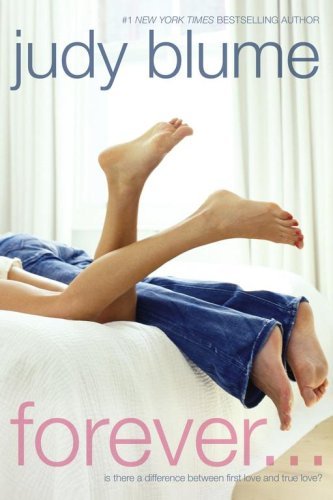
...and not just issues, an entire subscription.
This is a popular statement around my household. My younger sister always muddles it up and says I don't just have 'episodes, I have an entire series'. She's funny like that.
But in all seriousness, what merit do issue-based teen novels have? Are they important to teens learning valuable lessons? Or do teenagers in books dealing with things like pregnancy and suicide just corrupt our youth, as some overly-keen book banners may argue?
Well, no. I disagree. And they're not all about lessons, either.
Everyone accuses books for teenagers of having too many moral themes, so many issues, things like underage drinking and sex and the like, things that are just authors trying to teach teenagers lesson, or, worse, suggesting things that teenagers shouldn't even know of, let alone read about.
But here's the thing: Books for teenagers often contain big issues because when you are a teenager, you are confronted with all number of things. It's a time when you're first starting to become a person really independent of your parents, and starting to work out your beliefs and boundaries on your own. Teenagers are confronted by issues tackled in books for them on a daily basis, and the gatekeepers of teenaged fiction (parents, teachers, librarians) may fear that they are exposing youth to things that they're not ready for yet, when in fact these 'big issue' books, allow teens to explore themes like sex, drugs, etc and everything that comes with these things without having to experience it themselves. A book centralising around, for example, a boy's recovery from depression, isn't going to make a teenager depressed, but it just make them see they're not alone, and enlighten them to ways they can deal with things.
In that way, almost all books for teenagers (those set in our reality, or at least not in an outlandish Lord of the Rings-esque world) are 'big issue' novels. Many YA novels deal with great, confronting things like suicide, teenage pregnancy, drug use, abuse. It's important for teenagers to be able to identify with characters in novels, to relate, to know they're not alone. Novels like these also allow teenagers to explore things that they might never experience, and get a sense of other people's point of view. I think far too often people seeking to ban books say that they glorify teen sex or drug use - this is wrong. They don't glorify; they give you context. Emotional detail. These things allow for brilliant novels, but also novels that educate, that change teenagers' perspectives for the better.

*I originally posted this at the We Love YA blog.







